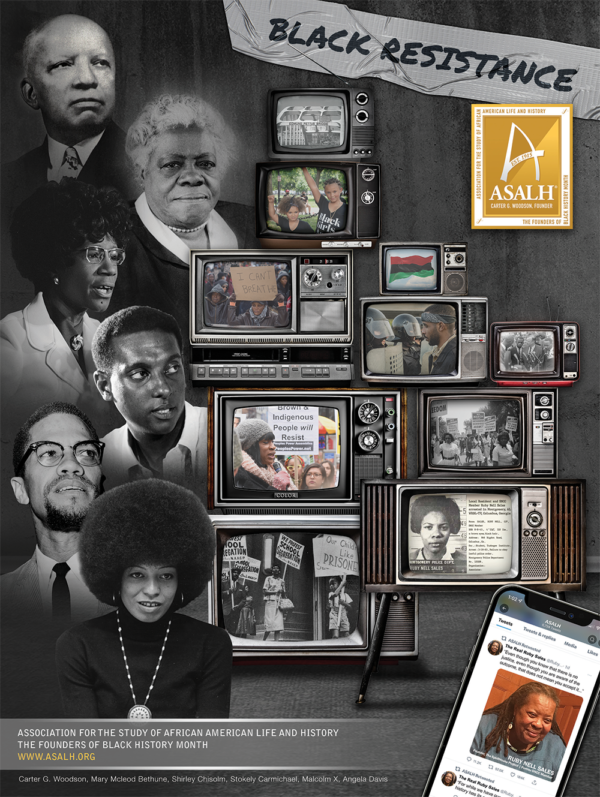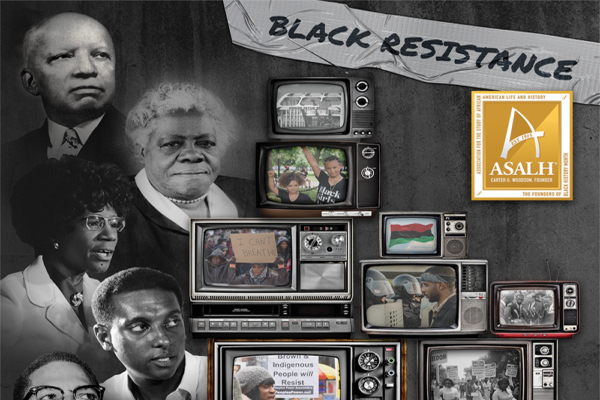Both American and Canadian workplaces are honouring Black History Month throughout the month of February, with activities focusing on this year’s theme of ‘Black resistance’.
This year’s theme explores the ways in which Black people have resisted oppression, discrimination, and prejudice over history. Thanks to this resistance Black people have achieved triumphs, successes, and progress over time such as increased political representation at all levels of government, the passage of Civil Rights Act of 1964, the opening of the Smithsonian National Museum of African American History in DC, increased and diverse representation of Black experiences in media and so much more. Yet, so much more progress is needed to stamp out discrimination both in society and in the workplace.
The Association for the Study of African American Life and History (ASALH) is urging everyone to study the history of Black Americans to establish safe spaces, where Black life can be sustained, fortified, and respected. Employers are well placed to help achieve this.
BLACK HISTORY MONTH EDUCATION
So how can organisations help workers to improve their understanding of Black history Month? Many Fortune 500 organisations now run educational workshop/panel, exploring issues that Black employees have faced and continue to battle in the workplace today. Bringing in influential authors, historians or activists, to speak to employees about race relations, civil rights, and other critical topics surrounding Black identity are also becoming popular. Panel discussions, in fact, are a good way for multiple speakers to engage in more thought-provoking discussions.
A great way for organisations to show their support for Black excellence and entrepreneurship is by ensuring their supplier list includes Black-owned businesses. Employers can also do more to encourage staff to shop or eat at Black-owned businesses. Many organisations are also starting to establish mentorships, scholarship funds, internships/apprenticeships, to help build a stronger pipeline of Black talent. Creating stronger pipelines through alliances such as Ten, Black Girls CODE, etc are now becoming popular. More companies are also establishing scholarships with Historically-Black Colleges or Universities (HBCUs), as well as mentorship opportunities.
Organisations, however, could do more to encourage employees to build a better understanding of Black History Month. Sharing a list of documentaries, podcasts, books, music, etc, through newsletters/events, etc, is a good way to share more about the Black experience for those wanting to learn more about African-American history. Documentaries on Netflix such as Who Killed Malcolm X? (see below), are ideal to learn more about Black American activists. Encouraging employees to learn about about lesser-known people in history advocating for equality, as well as key activists such as Martin Luther King Jr, Malcolm X and Rosa Parks, is important. Employers can also point staff who want to learn more to local US libraries and museums holding Black History Month exhibitions, as well as virtual tours for those unable to make in-person visits.
US BLACK HISTORY MONTH
Black History Month celebrations in North America aim to commemorate Black contributions to arts, culture, science, sport, and history. Also known as African-American History Month in the US, it’s a key time for recognising the central role of Black people in US history. It’s also a time to reflect on the continued struggle for racial justice. Understanding Black history and learning more about systemic racism is essential not just in the US – but globally. Other countries, like the UK also celebrate Black History Month, but later in the year, in October.
Since 1976, every US president has officially designated February as Black History Month. It started in 1915, half a century after the Thirteenth Amendment abolished slavery in the US, when Harvard-trained historian Carter G Woodson and the Minister Jesse E Moorland founded the Association for the Study of Negro Life and History (ASNLH).
BIRTH OF ASALH
This organisation was dedicated to researching and promoting achievements by Black Americans and people of African descent. Known today Association for the Study of African American Life and History (ASALH), the group sponsored a national Negro History week in 1926, choosing the second week of February to coincide with the birthdays of Abraham Lincoln and Frederick Douglass. The event inspired schools and communities nationwide to organise local celebrations, establish history clubs and host performances and lectures.
In the following decades, city mayors across the US started to recognise Negro History Week. By the late 1960s, thanks in part to the civil rights movement and a growing awareness of black identity, Negro History Week had evolved into Black History Month on many college campuses. However, it was President Gerald Ford who officially recognised Black History Month in 1976, and called upon the public to “seize the opportunity to honour the too-often neglected accomplishments of Black Americans in every area of endeavour throughout our history.”

BLACK HISTORY MONTH AT WORK
Over the course of this month, Fair Play Talks will be honouring the event by focusing on Black History Month in the workplace, through a series of articles throughout the month, so watch this space. In the meantime, check out our past guest columns dedicated to US Black History Month, including:
- Black History Month is Everybody’s History Month, by Diversity champion Dawn E Christian. She also reveals how her grandfather, Dr Merl R Eppse, played an instrumental role in the creation of Black History Week in the US. Click here to read.
- Michelle Wimes, Chief Equity & Inclusion Office of Children’s Mercy Kansas City, highlights the importance of celebrating the accomplishments of Black people both in and outside of the workplace. Click here to read more.
- Diversity and inclusion expert Nicole D Price highlights how celebrating Black History Month can help to normalise conversations about race and diversity in the workplace.
- East Coast Executives’ President Kenneth L Johnson reveals how organisations can better leverage Black History Month to deliver real diversity and inclusion results.








































